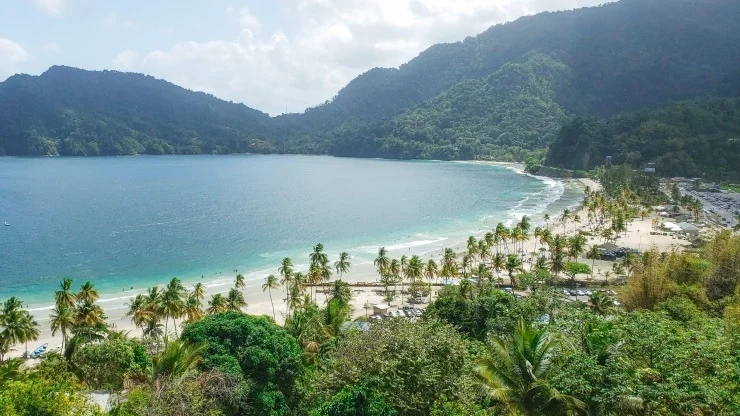1. Cost of Living: The cost of living in Trinidad and Tobago can vary. Generally, housing, transportation, and food costs are moderate. Rent for apartments or housing may range depending on the location and amenities.
2. Healthcare: Trinidad and Tobago have public and private healthcare facilities. Public healthcare services are available, but expatriates often opt for private healthcare for more comprehensive services.
3. Food: The cuisine is diverse, reflecting the country's multicultural population. Local markets offer fresh produce and a variety of food items.
4. Cultural Life: Trinidad and Tobago are known for their lively cultural scene, with events such as Carnival, music festivals, and religious celebrations. There are diverse cultural influences, including African, Indian, European, and indigenous traditions.
The cost of living in Trinidad and Tobago can vary depending on factors such as lifestyle, location, and personal choices. A general overview of some typical monthly expenses:
- Housing. Rent for a one-bedroom apartment in the city center: Approximately $1,000 to $2,000 USD per month.
Rent for a one-bedroom apartment outside the city center: Approximately $700 to $1,500 USD per month.
- Utilities. Basic utilities (electricity, heating, cooling, water, garbage): Approximately $100 to $200 USD per month.
- Groceries. Monthly grocery bill for one person: Approximately $200 to $400 USD.
- Transportation. Public transportation (bus or taxi): Approximately $1 to $3 USD per trip.
Monthly transportation pass: Approximately $50 to $100 USD.
- Dining Out. Meal at a mid-range restaurant: Approximately $15 to $40 USD per person.
- Entertainment. Movie ticket: Approximately $10 to $15 USD.
Fitness club or gym membership: Approximately $30 to $60 USD per month.
Pros:
- Cultural Diversity: Rich cultural diversity, with influences from African, Indian, European, and other cultures.
- Natural Beauty: Stunning landscapes, beautiful beaches, and a tropical climate.
- Carnival: Vibrant and lively Carnival, one of the largest and most colorful festivals in the Caribbean.
- Friendly Locals: Many visitors and expatriates note the friendliness and hospitality of the local population.
- Economic Opportunities: A well-developed energy sector, providing opportunities for employment, especially in the oil and gas industry.
Cons:
- Crime Rates: Trinidad and Tobago has faced challenges with crime, including issues such as robbery and violence. It's essential to be aware of your surroundings and take precautions.
- Healthcare System: The quality of healthcare services may vary. Expatriates may consider obtaining private health insurance for comprehensive coverage.
- Weather Challenges: The tropical climate brings the risk of hurricanes during the hurricane season, which may impact the islands.
- Public Transportation: Public transportation options, especially outside major urban areas, may be limited, and reliance on private vehicles is common.
- Job Market Competition: While there are economic opportunities, the job market can be competitive, and securing employment may require effort.
1. Port of Spain (Trinidad):
Capital City: The capital and largest city of Trinidad and Tobago, offering a mix of urban amenities, cultural attractions, and economic opportunities.
Business Hub: It serves as the economic and business hub of the country, with various businesses, government offices, and financial institutions.
2. Chaguanas (Trinidad):
Commercial Center: The commercial center of Trinidad, offering a range of shopping options, restaurants, and businesses.
Growing Population: It has experienced population growth and development in recent years.
3. San Fernando (Trinidad):
Industrial Hub: An industrial hub with a focus on oil and gas-related activities.
Cultural Attractions: It features cultural attractions and a diverse community.
4. Scarborough (Tobago):
Tobago's Capital: The largest town and capital of Tobago, the smaller of the two islands.
Tourism Hub: It serves as a hub for tourism, offering access to Tobago's beaches, resorts, and natural attractions.
- Job Opportunities:
If immigrating for employment, secure a job offer in advance. Having a job can strengthen your application and contribute to a smoother transition.
- Accommodation Arrangements:
Arrange for temporary accommodation upon arrival, and explore long-term housing options once you're on the ground.
- Financial Preparation:
Ensure you have sufficient funds to cover initial expenses and support yourself until you establish financial stability.
- Health Insurance:
Obtain health insurance that is valid in Trinidad and Tobago to cover medical expenses during your stay.
- Cultural Adaptation:
Familiarize yourself with Trinidadian and Tobagonian culture, customs, and local etiquette to ease the process of integration.





